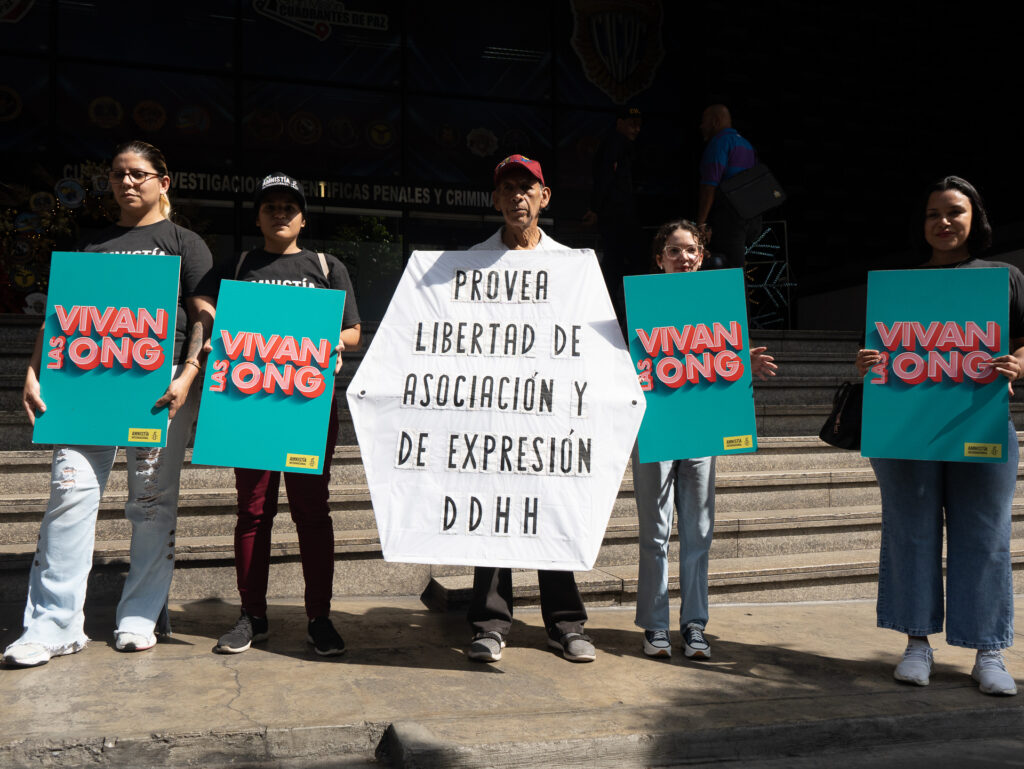Provea’s First Official Summons Marks an Offensive Against NGOs
The human rights NGO’s coordinator was required to declare as a witness about a claim made by the organization


Investigative police CICPC summoned Óscar Murillo, General Coordinator of Provea, to appear as a witness at their headquarters on Urdaneta Avenue in Caracas on Wednesday, November 20. According to Provea, the citation is reportedly part of an investigation led by the CICPC municipal delegation in San Cristóbal, Táchira state.
Although the citation did not clarify the basis or origin of the CICPC’s alleged investigation, nor the legal capacity in which university professor and journalist Óscar Murillo was required to appear, this development comes amidst a rapid and intense increase in abuses against human rights organizations following the elections of July 28.
It also coincides with acts of harassment and threats led by the newly appointed Minister of Interior, Justice, and Peace, Diosdado Cabello, targeting individuals and organizations that called for an impartial investigation into the circumstances surrounding the death of Edwin Santos, a 36-year-old activist, community leader and Voluntad Popular militant, in the state of Apure.
According to locals, Santos had been kidnapped in El Nula, western Apure (from which the closest big city is San Cristobal), by hooded armed men two days before he was found dead in a Táchira bridge, an hour north of the first location. When Santos’ death was made public, Provea stated that witnesses saw him in custody in an undisclosed Apure detention site, isolated and alive.

Provea noted that Santos’ body was discovered on a defective bridge he had long warned was dangerous for locals. CICPC chief Douglas Rico ruled out foul play, claiming Santos died in an accident after hitting a tree. The Interior Ministry ordered CICPC to investigate anyone contradicting this official version, labeling it as “lies and disinformation”, and claimed Provea would have to come forward with its witnesses in the Santos’ case.
Santos’ death has emerged as one of the most troubling examples of state violence in the electoral context. This is not only due to the brutality and mystery surrounding his death and the alleged involvement of the police but also because of the state’s aggressive efforts to silence those who question its official narrative.
“It’s not normal to be forced to declare on our work”
Provea’s history transcends Chavismo’s human rights violations. The organization was born in 1988, at the hands of founders Ligia Bolívar, who previously worked with Amnesty International; Dianorah Contramaestre, who gained experience working with grassroots communities in Caracas neighborhoods; and Raúl Cubas, a survivor of detention and disappearance during Argentina’s dictatorship.
Since, Provea has established itself as a highly credible NGO, earning trust across the country and abroad. “This is not the first time that Provea, in its 36 years of history, has denied an official government version. The organization already did it with the (1988) El Amparo massacre; or the Caracazo on 1989; when the disappearances of people in the Vargas landslide were reported in 1999” explains Lissette González, Provea’s Investigations Coordinator. “None of those governments ever legally summoned Provea. It is the first time that this has happened in our history.”
Indeed, this citation sets a disturbing precedent against NGOs and victims alike, especially amidst one of the highest peaks of state repression in Venezuela’s modern history. “This has an intimidating effect against NGOs, but also against victims, especially those in vulnerable situations outside Caracas”, explains Murillo to the press after his four-hour-long interview in the Homicide Division of the CICPC.
Although Murillo was interviewed by the CICPC’s Chief Inspector as a witness rather than a suspect, he was required to provide a statement about Provea’s involvement, detailing their actions from the moment they received the complaint from Santos’ family and how they supported other victims affected by the case: “We don’t fully understand the relationship between Santos’ death and the Law against Hatred, nor was it explained to us”.
The legal citation against Murillo is not the only troubling aspect setting a dangerous precedent for NGOs and human rights victims in Venezuela. Equally concerning were the conditions imposed by the CICPC at the start of Murillo’s interview. Press members were asked to leave the premises, asking only Provea’s team to remain stationed outside the CICPC building, as directed to Murillo’s lawyer shortly after his arrival. Furthermore, the interview, initially expected to last an hour, lasted an unsettling four and a half hours.
Regarding the impact of these legal and police harassment strategies on other NGOs, Lissette Rodríguez highlights that this precedent has not only led to changes in Provea’s security protocols but has also influenced how other organizations publicly report human rights violations: “Many organizations are very afraid, they have removed information from their websites and are not denouncing publicly. We think that in this context of risk, continuing to report is more important than remaining silent”.
Caracas Chronicles is 100% reader-supported.
We’ve been able to hang on for 22 years in one of the craziest media landscapes in the world. We’ve seen different media outlets in Venezuela (and abroad) closing shop, something we’re looking to avoid at all costs. Your collaboration goes a long way in helping us weather the storm.
Donate




